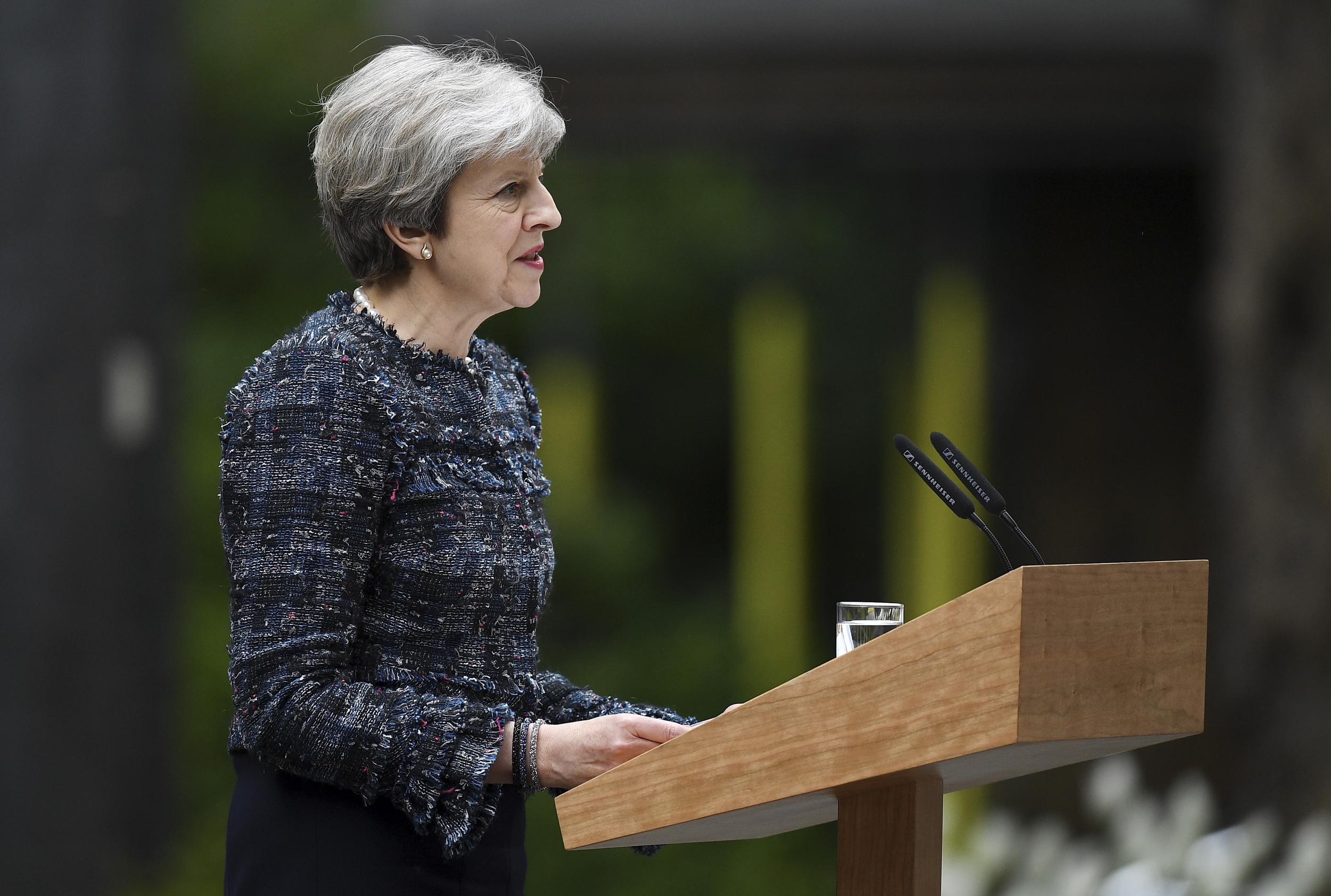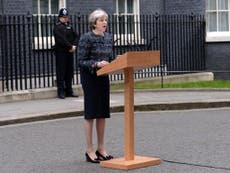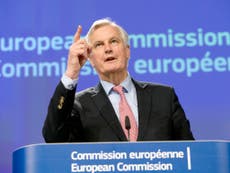Theresa May is destroying Britain's reputation in the EU and jeopardising negotiations
The Prime Minister's rhetoric, and its enthusiastic reception on the British right, will make striking a beneficial deal with the EU so much harder

One of Theresa May’s most frequently repeated slogans over the past few months has been that “we are leaving the EU, but we are not leaving Europe”. It carries the comforting assurance that when we are outside the EU we will still retain good relations with our continental partners, will cooperate closely on foreign policy, defence, anti-terrorism and migration.
It suggests we will retain with goodwill on all sides without drawing attention to the difficulties of reaching such a happy outcome after a long and bruising negotiation. It also signals that she does not share the underlying antagonism to Europe in general and Germany in particular of the outright Europhobes in her party.
Her outburst this Wednesday takes her to a different place. European negotiators, "Brussels bureaucrats" most of all, now appear to be our enemy. They are trying to influence the British election campaign, as the Russians have tried to influence other Western elections. They refuse to accept the British terms for negotiation, or British assumptions about the relative strengths of the contending parties.
While the leader of open and democratic Britain insists that talks should proceed in maximum secrecy on both sides, the “secretive and undemocratic” EU is insisting that there must be transparency and public accountability. Contrary to her earlier assurances that “I want the EU to be successful”, the Prime Minister’s language in Downing Street suggested that she would like the EU to implode.
Her rhetoric, and its enthusiastic reception on the British right, increases the likelihood that negotiations will break down. Chancellor Merkel was clearly among the Prime Minister’s targets and her criticisms of British "illusions" will have stung May. Cumulative irritation with British demands for exceptional treatment has burst out in a hardening of positions from other governments – the outcome of successive negotiations, of David Cameron’s tantrum at the European Council of December 2011, of Boris Johnson’s shallow flippancy and David Davis’s arrogance, of the sustained aggression of Ukip and Conservative MEPs in the European Parliament, and the anti-German and anti-European excesses of the British press.
A strong, stable government acting in the national interest would step back from such a destructive confrontation. The national interest will not be served by reaching a point at which long queues of lorries stretch out from ports on both sides of the Channel, because no agreement has been reached on fast-track customs clearance, nor by dropping out of Eurocontrol, leaving UK aviation having to negotiate flightpaths across the European continent. Nor by abandoning Europol, insisting on taking back control of our borders while criminal networks and terrorist groups still manage to work across them.
Reports from within Government that it intends to follow the Trump administration into further military action in Syria suggests where the UK will end up in foreign policy as it leaves the EU framework through which we have worked for 40 years. British policy in the Middle East has been most effective when coordinated with the French and Germans, in what has been known as the E3. In the Iranian nuclear negotiations this was reinforced by the EU’s own “high representative” for foreign policy – Cathy Ashton, a British nominee. As we cut off our regular meetings with other EU foreign ministers, it appears we will wait for Washington to propose what action to take, and follow its lead.
Conservative Europhiles, who understand where our long-term interests lie, must be aghast. They must also fear that the Conservative manifesto, when published, will box them into positions they cannot support. Many will face Ukip opponents, attacking them for their Remain campaigning, while their Eurosceptic colleagues are spared such competition. Watching Dominic Grieve on Newsnight taking a different line from his party leader while trying not to appear disloyal was painful, and their agony will only grow.
May called this election partly because she realised that the triggering of Article 50 marked the awkward transition from broad promises of a cost-free Brexit to the hard detail of complex negotiations, dossier by dossier, rejecting Liberal Democrat demands to stay in the single market or give the people a say on the final deal.
Better to secure a comfortable majority before the public begin to understand the difficulties, and costs. The Prime Minister has little experience of international negotiation. Her assumption, over dinner with the EU delegation, that this comprehensive negotiation could be handled like the opt-out negotiations on police, counter-terrorism and justice that she conducted as Home Secretary, cherry-picking those elements that suited Conservative preferences, infuriated her visitors.
As she said in Downing Street, these negotiations are vital to the future of Britain – but they are also vital to the future of Europe. If the Prime Minister has considered this, and the importance to Britain’s long-term national interests of maintaining a close and mutually-confident relationship with our partners, she has not yet told anyone what she wants to achieve.



Join our commenting forum
Join thought-provoking conversations, follow other Independent readers and see their replies